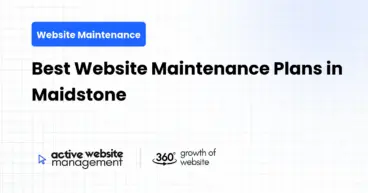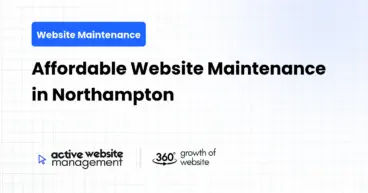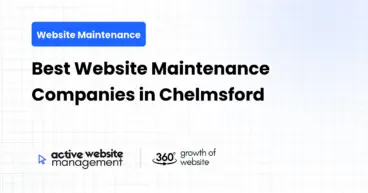January 23, 2025
16 min read
Navigating the complex world of legal tech as a startup is challenging enough. You’re constantly innovating, refining your product, and striving to make a mark. But amidst all this, one crucial aspect often gets overlooked: your website. Think of your website as your digital storefront, the first impression many potential clients and investors will have of your brand. A neglected website, much like a storefront with dusty windows and broken signage, can severely hamper your growth. This is why proactive legal tech website upkeep is not just a good idea, it’s a necessity. Let’s delve into six critical website maintenance tips specifically tailored for legal tech startups. These tips will ensure your website remains a powerful tool, helping you acquire customers, build credibility, and achieve your ambitious goals.
1. Prioritize Regular Security Updates: The Fortress of Your Legal Tech Platform
In the legal field, security isn’t just a nice-to-have, it’s paramount. Your attorney platform and the sensitive information it often handles make your website a prime target for cybercriminals. Ignoring security updates is akin to leaving your front door unlocked. It’s not a matter of if a breach will happen, but when, and the consequences for a legal tech startup can be devastating.
Why Security Updates Matter
- Protect Sensitive Data: Legal data, client information, and intellectual property are highly sensitive. Security updates patch vulnerabilities that hackers can exploit to access this data.
- Maintain User Trust: A data breach can severely damage your reputation and erode trust in your platform. Clients need to know their information is safe with you.
- Avoid Legal Complications: Data breaches can lead to legal repercussions, fines, and lawsuits. Staying proactive with security measures can mitigate these risks.
- Prevent Service Disruption: Cyberattacks can bring your website down, interrupting service and impacting your users. Regular updates help keep your site up and running smoothly.
How to Implement Robust Security Updates
- Implement a Patching Schedule: Set a regular schedule for applying security updates. This includes software updates for your CMS (Content Management System), plugins, and themes. Aim for weekly or bi-weekly checks for updates.
- Utilize Strong Passwords: Enforce the use of complex, unique passwords for all administrative accounts. Consider a password manager to handle this efficiently.
- Install a Security Plugin/Tool: Use a security plugin or service to monitor your website for threats and vulnerabilities. These tools can often automate scans, detect malware, and provide real-time alerts. Popular choices include Wordfence, Sucuri, and iThemes Security.
- Enable SSL/TLS Encryption: Make sure your website uses HTTPS, which encrypts data transmitted between the user’s browser and your server. This helps protect sensitive information from eavesdropping.
- Perform Regular Backups: Back up your website frequently. If an attack occurs, you can restore your site to a clean version, minimizing downtime and data loss. Automate this process whenever possible.
- Keep Up With Industry Best Practices: Stay informed about the latest security threats and best practices in the legal tech industry. Attend webinars, read articles, and engage with cybersecurity communities to stay ahead of the curve.
By consistently and diligently applying these security measures, you’re creating a strong defense around your attorney platform, protecting your business and your users. It’s not just about patching; it’s about building a security-focused culture within your legal tech startup.
2. Regularly Back Up Your Website: Your Safety Net in the Digital World
Imagine waking up one day to find your website completely gone. Data deleted, files corrupted, a blank screen staring back at you. That’s the nightmare scenario every legal tech startup wants to avoid. Regular backups act as your safety net, a digital insurance policy that can save you from potential disaster.
Don’t Just Maintain Your Website—
Grow It using Active Website Management! Don't Wait for Growth—Accelerate It with Active Website Management
Why Backups are Non-Negotiable
- Data Recovery: If your website is hacked, experiences a technical error, or suffers from accidental data deletion, a recent backup allows you to restore your site and minimize disruption.
- Peace of Mind: Knowing you have a recent backup provides peace of mind, allowing you to focus on growing your business instead of worrying about potential disasters.
- Rapid Restoration: With a backup, you can quickly restore your site with minimal downtime, reducing the impact on your users and business operations.
- Protection Against Human Error: Accidental deletions, accidental code changes, and other human errors are common. Backups help you revert to a working version of your site.
- Compliance: In many cases, regulations and compliance standards require businesses to maintain regular backups of their data.
How to Implement an Effective Backup Strategy
Choose a Backup Method: Explore various backup solutions and choose the one that best fits your legal software site and your needs. Options include:
- Automated Website Backups: Most web hosting providers offer automated backup services. This is the most convenient and reliable option for many.
- Plugin Solutions: If you’re using a CMS like WordPress, several plugins can automatically back up your site to various destinations, like cloud storage services.
- Manual Backups: While time-consuming, manual backups provide the most control. This may be an option for smaller sites with limited updates.
Determine Frequency: The frequency of your backups depends on how often your website is updated. If you update your site daily, you should back it up daily. Weekly backups may suffice for sites with less frequent changes.
Test Your Backups: It’s not enough to just back up your site. You need to test the backups regularly to ensure they are working correctly. Restore your site from a backup to confirm it functions as expected.
Store Backups in Multiple Locations: Don’t put all your eggs in one basket. Store your backups in multiple locations. This can include local storage (like your computer or hard drive) and cloud storage (like Google Drive, Dropbox, or Amazon S3). This provides redundancy in case one storage location becomes unavailable.
Automate the Process: Wherever possible, automate your backups to reduce the risk of forgetting them. Automating will make sure it will be done regularly and consistently.
Document Your Backup Procedure: Create a detailed process document for your backup procedure, noting how, when, and where backups are performed and how to restore your website. This will help anyone on your team who needs to recover your website in the future.
Consistent backups are not just good practice; they’re your lifeline. They allow you to recover from any crisis, ensure business continuity, and maintain your reputation. By integrating regular backups into your website maintenance routine, you’re demonstrating a commitment to data integrity and business resilience.
3. Optimize Website Speed and Performance: The Race Against User Attention
In today’s fast-paced digital world, website speed is no longer optional, it’s a critical ranking factor. Slow loading times can make a user leave your site, leading to lost potential clients, reduced engagement, and lower search engine rankings. For a legal tech startup, where a smooth and professional online presence is crucial for establishing credibility, website performance is essential.
Why Speed Optimization Matters
- Improved User Experience: Users expect websites to load quickly. Slow websites lead to frustration, and frustrated users are likely to abandon your site.
- Increased Engagement: Fast-loading websites keep users engaged. They explore your content, learn about your solutions, and are more likely to convert into customers.
- Higher Search Engine Rankings: Search engines like Google use website speed as a ranking factor. Faster websites generally rank higher in search results, increasing visibility.
- Reduced Bounce Rates: Slow websites lead to high bounce rates, which means users quickly leave your site without interacting with it. Speed optimization lowers bounce rates, improving site traffic and engagement.
- Mobile Friendliness: Speed is particularly important for mobile users, who often have slower internet connections. A fast website provides a seamless mobile experience.
How to Speed Up Your Legal Tech Website
- Optimize Images: Large images are a common culprit behind slow website loading. Optimize images by compressing them without losing quality, and use the correct image file format (JPEG for photos, PNG for graphics). Tools like TinyPNG or ImageOptim can help automate this process.
- Minimize HTTP Requests: Every element on your website (images, scripts, CSS files) requires an HTTP request. Reducing these requests can improve speed. Combine CSS and JavaScript files, and use CSS sprites for images where applicable.
- Enable Browser Caching: Browser caching allows browsers to store static assets of your website locally. This means subsequent visits to your site will load much faster. Enable browser caching on your server.
- Utilize a Content Delivery Network (CDN): A CDN stores copies of your website on servers around the world. When a user visits your site, the content is delivered from the server closest to them, reducing loading times.
- Choose a Fast Hosting Provider: Your hosting provider plays a major role in website speed. Choose a reputable hosting provider with optimized servers. Consider using dedicated or VPS hosting if shared hosting is not fast enough.
- Minify CSS, JavaScript, and HTML: Minifying your code removes unnecessary characters from code without altering its functionality, which reduces file sizes and speeds up loading times.
- Use Gzip Compression: Gzip compression compresses files before they are transmitted to the browser, reducing the amount of data that needs to be transferred and thereby speeding up page loading times.
- Regularly Check and Optimize Your Database: Over time, your website database can become bloated, slowing down performance. Regularly clean up your database by removing unused tables, posts, and revisions.
- Test Your Website Speed: Use tools like Google PageSpeed Insights, GTmetrix, or WebPageTest to analyze your website speed. These tools will show you specific areas where you can make improvements.
- Monitor Regularly: Speed optimization is an ongoing process. Monitor your website speed regularly and make adjustments as needed.
By prioritizing speed and performance, you’re not only making your legal software site more enjoyable for users, but you’re also sending a strong signal to search engines that your platform is user-friendly and deserves to be ranked higher. It’s a win-win that directly contributes to the success of your startup.
4. Conduct Regular Content Audits: Keep Your Legal Tech Platform Relevant and Engaging
Content is the lifeblood of your website. It’s what attracts users, educates them about your solutions, and ultimately drives conversions. However, over time, content can become outdated, irrelevant, or simply perform poorly. Regularly auditing your content is crucial to ensure your website remains a valuable resource for your audience and a strong tool for your business.
Why Regular Content Audits are Important
- Maintain Relevance: The legal tech landscape evolves rapidly. Content that was relevant a year ago may be outdated today. Regular audits ensure your content remains accurate, current, and valuable to your audience.
- Improve SEO: Search engines favor fresh, relevant content. Regularly updating and optimizing your content can boost your search engine rankings.
- Enhance User Engagement: Outdated or poorly performing content can lead to decreased user engagement. Audits help you identify and address issues, improving the user experience.
- Identify Content Gaps: A content audit can uncover gaps in your content strategy, highlighting areas where you need to create new content to better serve your audience.
- Improve Conversion Rates: Effective content drives conversions. Audits allow you to identify high-performing content and content that needs improvement, optimizing your site for conversions.
How to Conduct a Content Audit
- Inventory Your Content: Start by creating a comprehensive list of all the content on your website. This includes pages, blog posts, case studies, white papers, and any other type of content. You can use a spreadsheet to organize this list.
- Analyze Performance Data: Once you have your content inventory, use analytics tools like Google Analytics to analyze performance data. Look at metrics like page views, bounce rates, time on page, and conversion rates.
- Assess Relevance and Accuracy: Evaluate each piece of content for its relevance and accuracy. Is it still accurate and aligned with your current messaging? Is it valuable to your audience? Look for out-of-date information, broken links, and areas where the content could be improved.
- Identify Underperforming Content: Identify content that is underperforming (e.g., high bounce rates, low time on page, low traffic). These are content pieces that may require updates or removal.
- Determine Content Gaps: Identify areas where you are missing content. What questions are your users asking that you are not answering? What topics could you cover to better serve their needs?
- Develop an Action Plan: Based on your findings, create an action plan. This might include updating existing content, creating new content, removing outdated content, or improving the optimization of existing content.
- Implement and Monitor: Implement your action plan and monitor the results. Track key metrics to see if your changes are having the desired effect.
By undertaking regular content audits, you ensure that your website remains a valuable resource for your audience and a potent tool for growing your legal tech business. This proactive approach will help your attorney platform stay ahead in the dynamic legal technology space.
5. Prioritize Mobile Friendliness: A Must-Have for Today’s Users
In today’s mobile-first world, optimizing your website for mobile devices isn’t an option, it’s an absolute necessity. More and more users are accessing websites on their smartphones and tablets, and if your website isn’t mobile-friendly, you risk alienating a significant portion of your potential audience. For a legal tech startup, a professional and accessible mobile experience is non-negotiable.
Don't Wait for Growth—Accelerate It with
Active Website Management Don't Wait for Growth—Accelerate It with Active Website Management
Why Mobile Optimization is Critical
- Increased User Base: Mobile devices account for a significant portion of web traffic. A mobile-friendly website allows you to reach a wider audience.
- Improved User Experience: Mobile users need a different experience than desktop users. Mobile optimization ensures your website is easy to navigate and interact with on smaller screens.
- Higher Search Engine Rankings: Google prioritizes mobile-friendly websites in its search results. If your site isn’t mobile-friendly, your search engine rankings may suffer.
- Higher Conversion Rates: A mobile-friendly website provides a seamless user experience, which leads to increased engagement and higher conversion rates.
- Brand Credibility: A modern, mobile-friendly website enhances your credibility and builds trust with your users.
How to Make Your Website Mobile-Friendly
- Use a Responsive Design: Responsive design is the most effective way to make your website mobile-friendly. It ensures your website adapts to different screen sizes, providing an optimal viewing experience on any device.
- Prioritize Page Speed: Mobile users are often on slower internet connections. Optimize your website for speed by minimizing file sizes, enabling browser caching, and using a CDN.
- Use a Mobile-Friendly Theme or Framework: When selecting a theme or framework for your website, ensure it is mobile-friendly. Many themes and frameworks are designed specifically for mobile responsiveness.
- Optimize Text and Fonts: Use large, legible fonts that are easy to read on small screens. Avoid dense paragraphs of text. Use headings and subheadings to break up content.
- Optimize Navigation: Mobile navigation should be simple and intuitive. Use clear menus and buttons that are easy to tap on small screens. Consider using a "hamburger" menu.
- Optimize Images and Videos: Optimize images and videos for mobile devices. Compress images and videos without compromising quality.
- Use Touch-Friendly Elements: Ensure all interactive elements like buttons and links are easily tappable on touch screens.
- Test on Multiple Devices: Test your website on various mobile devices and operating systems to ensure it works correctly. Use browser developer tools to simulate mobile device viewing.
- Avoid Pop-Ups and Intrusive Ads: Avoid intrusive pop-ups and ads that can disrupt the mobile user experience.
- Monitor Mobile Performance: Monitor your website performance using analytics tools. Look for areas where you can improve the mobile user experience.
By prioritizing mobile friendliness, your legal software site is not just adapting to current trends, but also preparing for the future. Ensuring a seamless user experience for all devices is critical for building trust and credibility.
6. Leverage Active Website Management for Consistent Upkeep: A Hands-Off Approach
Maintaining a website, especially one that’s critical to a legal tech startup, can be time-consuming and require specialized knowledge. That’s where active website management comes in. It’s like having a dedicated team ensuring your digital storefront is always looking its best, running smoothly, and secure.
Why Active Website Management is the Right Choice
- Focus on Your Core Business: As a startup founder, your focus should be on product development, customer acquisition, and growth. Outsourcing website management allows you to dedicate your valuable time and resources to these core areas.
- Expertise and Experience: Website management services are typically provided by professionals with specialized knowledge in web development, security, SEO, and content management. This ensures your website is in capable hands.
- Proactive Maintenance: Active website management ensures your website is proactively maintained with regular updates, security patches, backups, and performance optimizations.
- Reduced Risk: By outsourcing website management, you reduce the risk of website downtime, security breaches, and other potential issues that could impact your business.
- Time Savings: Managing a website in-house can be a significant time drain. By outsourcing, you and your team can save valuable time and focus on more strategic activities.
- Cost-Effective: Hiring a dedicated in-house team for website management can be expensive. Outsourcing active website management is often more cost-effective, especially for a startup with limited resources.
- Scalability: As your legal tech startup grows, your website management needs may also evolve. Active website management services can scale with you, ensuring your website remains well-maintained, even as your business expands.
What to Look for in a Website Management Service
When selecting an active website management service for your legal tech website, consider the following factors:
- Security Expertise: Choose a provider with a strong understanding of website security and a proven track record of keeping websites safe from threats.
- Technical Support: Make sure the provider offers reliable technical support to address any issues that arise promptly and effectively.
- Backup and Recovery Services: Look for a provider that offers regular website backups and a reliable recovery process in case of a disaster.
- Performance Optimization: The provider should have experience optimizing website speed and performance.
- Content Management: If you need help with content updates, make sure the provider offers content management services.
- SEO Expertise: If you need assistance with SEO, ensure the provider has expertise in this area.
- Clear Communication: Choose a provider that communicates proactively and provides regular reports on the status of your website.
Active Website Management, like the service provided by Active Website Management (https://activewebsitemanagement.com/), can handle the technical details of your website upkeep. This lets you focus your attention on your core business, knowing your website is running smoothly, securely, and effectively.
Conclusion: Investing in Long-Term Success
In the competitive world of legal tech startups, your website is a valuable asset. It’s the first impression, the information hub, and the primary tool for attracting and retaining clients. By implementing these six critical website maintenance tips—prioritizing security, backups, speed, content, mobile optimization, and leveraging professional website management— you’re not just maintaining a website, you’re investing in your long-term success. These strategies will ensure your legal tech website remains secure, engaging, performant, and well-suited to help you accomplish your business goals. Don’t let a neglected website hold your startup back. Take control and make sure your digital presence reflects the innovative power of your legal tech solution.






